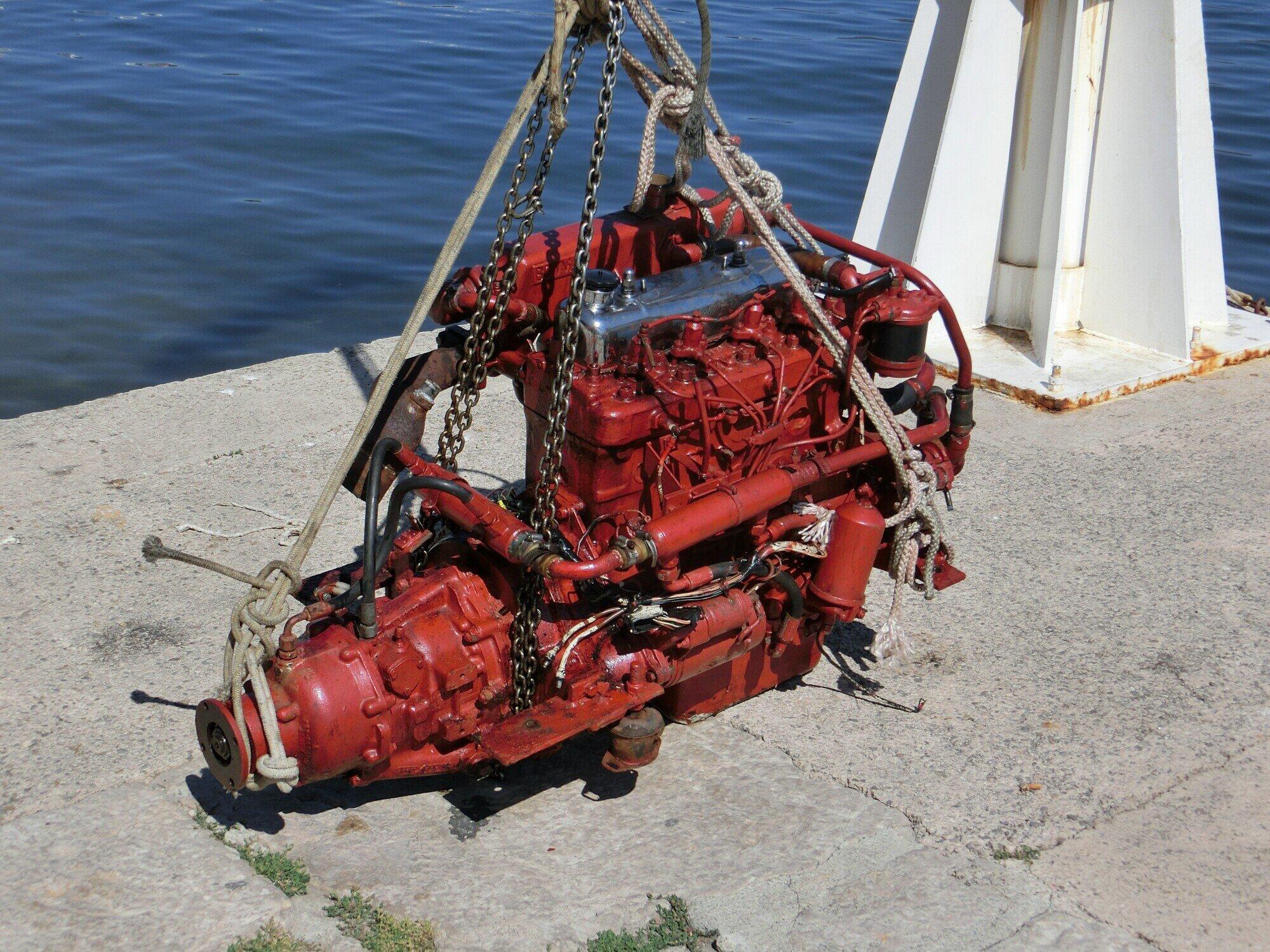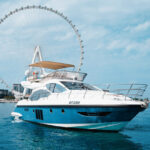Why do seasoned sailors always seem to have a calm demeanor, even in the face of engine troubles? The secret isn’t just experience. It’s confidence in their marine engine repair skills.
Keeping a boat’s heart (the engine) in prime condition is the cornerstone of worry-free sea adventures. Whether you’re navigating through serene lakes or battling the waves of the open sea, the assurance that your marine engine is in top shape allows for that peace of mind.
This guide is your first step towards becoming the confident captain who knows their vessel inside and out. With our insights into marine engine maintenance and repair, we’ll show you how crucial this knowledge is to enhancing your boating experience. Keep reading to discover simple yet effective ways to maintain your engine’s performance and reliability.
Table of Contents
Marine Engine Basics
Knowing your marine engine is the first step to ensuring its longevity and reliability. Whether you have an inboard motor, an outboard motor, or even a different type, understanding the basics of your engine can make a huge difference in how well you maintain it. Marine engine maintenance starts with knowing the kind of engine powering your boat.
Inboard motors are built inside the boat and offer a center of gravity that’s beneficial for larger boats. They’re known for their durability and are typically used on boats designed for longer voyages.
Outboard motors, on the other hand, are mounted on the back of the boat and can be lifted out of the water. This makes them ideal for smaller boats and provides easy access for maintenance. Outboard engines are popular for their versatility and ease of replacement.
Each type of engine has its unique maintenance needs. For example, inboard motors require regular checks of the propeller shaft and the cooling system, which is crucial for preventing overheating. Outboard motors, with their exposure to saltwater, demand frequent cleaning to prevent corrosion and buildup.
Basic Marine Engine Maintenance
Taking care of your marine engine is crucial for ensuring it runs smoothly and lasts as long as possible. Regular inspection and cleaning, timely oil and filter changes, and cooling system upkeep are foundational aspects of basic marine engine maintenance.
Regular Inspection and Cleaning
Inspecting your engine regularly helps catch potential problems before they escalate. You should look for any signs of wear and tear, leaks, or corrosion, especially if you often sail in saltwater. Saltwater can accelerate corrosion, so rinsing your engine with fresh water after outings is a good practice.
Keeping the engine and its surrounding area clean prevents the buildup of salt, grime, and other debris that can hinder its performance.
Oil and Filter Changes
Changing the oil and filter is like giving your engine a fresh breath of air. For most marine engines, changing the oil every 100 hours of operation or at least once a season is recommended. Fresh oil lubricates moving parts more efficiently, reducing wear and tear.
Similarly, a clean filter ensures that your engine’s oil remains free from contaminants that can damage internal parts. This simple maintenance step can significantly extend the life of your engine.
Cooling System Upkeep
The cooling system plays a vital role in preventing your engine from overheating. It needs to be checked regularly for any blockages or leaks. Most marine engines are cooled by seawater, which means the cooling system can accumulate deposits that restrict water flow.
Flushing the system can help remove these deposits and maintain efficient cooling. Ensuring that the coolant levels are adequate and the hoses are in good condition is also part of this upkeep.
Fuel System Care
Keeping the fuel system of your marine engine clean is critical for optimal performance and longevity. This section dives into how to inspect and maintain fuel lines, filters, and tanks, and shares tips for preventing fuel contamination, which is especially relevant for those with an outboard engine.
Inspecting Fuel Lines and Filters
Fuel lines and filters are the lifelines of your marine engine. Regular inspections can prevent fuel leaks and ensure that clean fuel is being delivered to the engine.
Check the fuel lines for any signs of wear, cracking, or damage. It’s important to replace any compromised lines to prevent leaks.
Fuel filters should be checked and replaced annually or more frequently if you use your boat often. Clean filters are essential for preventing contaminants from reaching the engine.
Maintaining the Fuel Tank
The fuel tank itself requires attention to prevent corrosion and buildup of sediments. Keeping the tank filled minimizes the space for moisture to accumulate, which can lead to corrosion inside the tank.
Additionally, using a fuel stabilizer can help maintain fuel quality, especially if the boat is not used for extended periods. This is particularly important for boats with an outboard engine, as they are more exposed to the elements.
Preventing Fuel Contamination
Fuel contamination can occur from water, dirt, or biological growth entering the fuel system. To prevent this, always use clean, high-quality fuel.
Ensure the fuel cap is securely fastened after filling up to prevent water from entering. Regularly draining any water from the fuel filter (if equipped with a drain) can also help maintain fuel quality.
Electrical System Checks
Maintaining your boat’s electrical system is essential for safe and reliable outings. This system powers everything from your lights to the starter motor of your engine. A well-maintained electrical system ensures your boat is ready when you are.
Preventing Corrosion
Corrosion is the enemy of any marine electrical system. To prevent corrosion, regularly inspect all electrical connections.
Look for any signs of rust or greenish buildup and clean them as needed. Using a corrosion-resistant spray on these connections can help protect them further.
Battery Care
The battery is the heart of the electrical system. Regular maintenance includes checking the battery’s charge level, ensuring the connections are tight and free from corrosion, and keeping the battery terminals clean. If your battery is not a maintenance-free type, check the fluid levels and top them off with distilled water if necessary.
Storing the battery in a cool, dry place when not in use prolongs its life. Always ensure it’s fully charged before storage to prevent damage.
Propeller and Drive System Maintenance
Your boat’s propeller and drive system directly affect performance and fuel efficiency. Regular maintenance here is crucial for smooth sailing.
Inspection and Maintenance of Propellers
Inspecting your propeller for nicks, dents, and other damage is key. Even minor damage can significantly affect performance. If you find damage, consider having the propeller repaired or replaced.
Also, make sure the propeller is securely fastened and that there are no foreign objects entangled around the propeller shafts.
Drive System Care
The drive system, which includes the propeller shafts, needs regular checks for alignment and lubrication. Misalignment can cause vibrations and damage to the boat’s structure, while proper lubrication prevents wear and tear on moving parts.
If you’re not comfortable checking the alignment yourself, marine services can help. They have the tools and expertise to ensure your drive system is in top condition. Troubleshooting common issues early can save you time and money down the road.
Looking for a replacement? Click for propeller shafts here.
Winterization and Storage
As the boating season winds down, preparing your boat for the off-season is a crucial step in boat ownership. Winterization and proper storage protect your investment and ensure your vessel is ready for action when warmer weather returns.
The first step in winterization is to protect your engine from the cold. Draining any water from the engine and adding antifreeze prevents freezing damage.
Changing the oil and applying a protective spray on metal surfaces helps guard against corrosion. It’s also a good time to lubricate steering and control systems to keep them smooth.
Choosing the right storage location is key. If storing outdoors, a well-fitted cover protects against weather and UV damage. Indoors, a climate-controlled space offers the best protection but may not always be available.
Elevating your boat on blocks can relieve pressure on the hull and prevent flat spots on tires if it’s stored on a trailer.
Professional Marine Engine Repair and Maintenance
Even the most diligent boat owners may encounter issues that require professional attention. Seeking out professional maintenance and repairs is a necessary step to ensure the longevity and safety of your marine engine.
Knowing when to seek help is key. If you notice unusual noises, performance drops, or any signs of wear that seem beyond basic care, it’s time to call in the experts. Professionals have the tools, knowledge, and experience to diagnose and fix problems efficiently and prevent minor issues from becoming major headaches.
Sail Smoothly with Engine Confidence
Mastering marine engine repair and maintenance transforms challenges into mere bumps on your boating adventure. This article has sailed you through essential maintenance tips, from understanding your engine type to winterizing for the off-season. Equipped with this knowledge, you’re not just maintaining an engine. You’re ensuring endless, carefree journeys on the water.
Craving more nautical know-how? Dive deeper into our blog for a treasure trove of boat maintenance tips and marine services insights.






